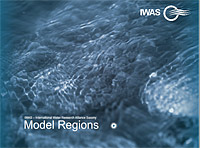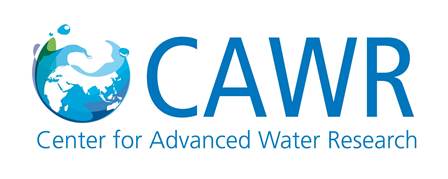The IWAS Initiative
Background
Currently, around one billion people have no access to safe drinking water and around three billion people live without adequate sanitation. This situation has serious impact on the health of these people, but also on the economy of the concerned countries and regions. At the world summit in Johannisburg in 2002, the United Nations agreed upon the Millennium Development Goals (MDG). One of these goals is to reduce the number of people without access to safe drinking water and without sanitation by half by the year 2015. The IWAS project unites various partners that work together, in order to contribute to the achievement of this goal.
About IWAS

The International Water Research Alliance Saxony - IWAS was initiated by the Helmholtz Centre for Environmental Research – UFZ, the Dresden University of Technology and the Stadtentwässerung Dresden (member of German Water Partnership – GWP) and is funded by the German Ministry of Science and Education (BMBF). In order to face the challenge set by the UN in the MDGs around 50 scientists from the three institutions together with other partners from science, industry and political decision-makers, we develop specific solutions to particular water related problems in five regions worldwide under the concept of Integrated Water Resources Management (IWRM).
IWAS Research
As the reasons for the occurring water problems are specific to the conditions in the investigated regions, a variety of water-related problems is addressed:
- The improvement of surface water quality in view of the EU-water framework directive in countries of the former Soviet Union (Eastern Europe).
- The development of adequate strategies, tools and measures for the adaptation to a changing environment in extreme climatic conditions (Central Asia).
- The improvement of water management concepts for large urban areas as to water supply (Latin America) and to waste water and sludge disposal (South East Asia).
- The sustainable management of scarce water resources in arid areas (Middle East).
- In order to develop substantiated management concepts, models predicting future scenarios are an essential tool. Within IWAS these modelling tools are developed for an integrated scenario and system analysis (IWAS Tool Box).
- Additionally, IWAS aims at developing system solutions, adaptation strategies, tools and methods that can be sustainably implemented in the regions under investigation. Therefore, the development of adequate knowledge transfer and capacity building concepts is an essential part of IWAS.
Within the model regions IWAS exemplarily brings together fundamental research with economic development. In each case, the particular socio-economic structures are taken into consideration. In order to make the proposed system and management solutions work, we closely collaborate with local stake-holders and aim for the establishment of competences in the respective regions. By following this concept IWAS provides specific solutions for an Integrated Water Resources Management and contributes to the achievement of the Millennium Development Goals.





.png)
.png)
